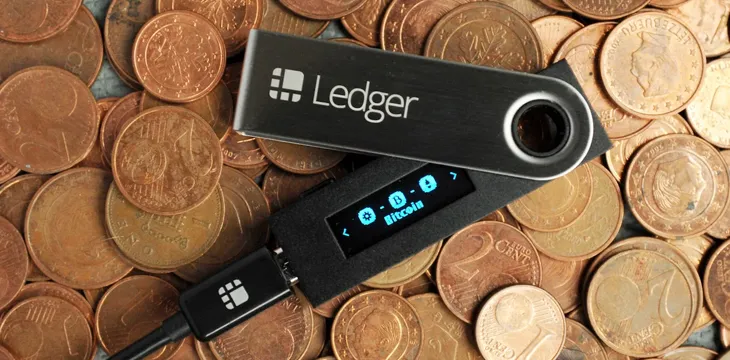|
Getting your Trinity Audio player ready...
|
The number of physical cryptocurrency wallets that Ledger sold in 2017 has exceeded the 1 million mark, the Paris-based crypto wallet company told Forbes. This means that the company posted a profit of around $25 million for the year, demonstrating its business prowess.
The company now intends to enter new markets with its President Pascal Gauthier planning to raise more money in 2018 after it raised a staggering $75 million in January. Sources close to the company have also indicated that tech giants such as Siemens, Samsung and Google have also had a look at its financials.
The company’s product centres on a USB stick containing keys to a Bitcoin wallet, which is supposedly untraceable and looks to be the future for digital wallets. The stick is called a Ledger Nano S, with the company fast on its way to becoming Europe’s first crypto unicorn.
“Blockchain itself is secure, but signing on the blockchain is a flaw,” Gauthier told the news outlet.
Ledger users have a private key which gives him or her access to their crypto fortune. “Signing” is the process of using that key to access your wallet and send cryptocurrency like BTC to another wallet. The problem is that these “keys” are simply strings of 256 characters that are held outside the blockchain network and are at a hugely high risk of being stolen—someone could simply copy/paste your key and have instant access to your crypto holdings.
According to Gauthier, once you lost the private key, “there’s no bank looking after your assets or any way to recover.”
Gauthier, who left NASDAQ-listed ad tech company Criteo in 2014, said he was drawn to the private key challenge of cryptocurrency. In those days, investors entrusted their Bitcoin fortunes to third parties, which quickly came under attack from hackers, with the most monumental episode being the 2014 Mt. Gox hack in which users lost over $450 million in Bitcoin.
Enter Pascal Gauthier with his solution to put private keys in “cold storage,” by placing them on a separate device the size of a USB stick.
It wasn’t a unique idea of course as there are dozens of hardware wallets available with names like Trezor and Secalot, but Ledger’s ease-of-use and security with devices like the Ledger Nano S quickly made it among the best-selling crypto hardware wallets.
In 2017, Ledger sold over 1 million devices across 165 countries, generating sales in excess of €45 million ($52.9 million) and resulting in Ebitda of €25 million ($29.4 million) for the company, according to Gauthier.

 07-09-2025
07-09-2025 





